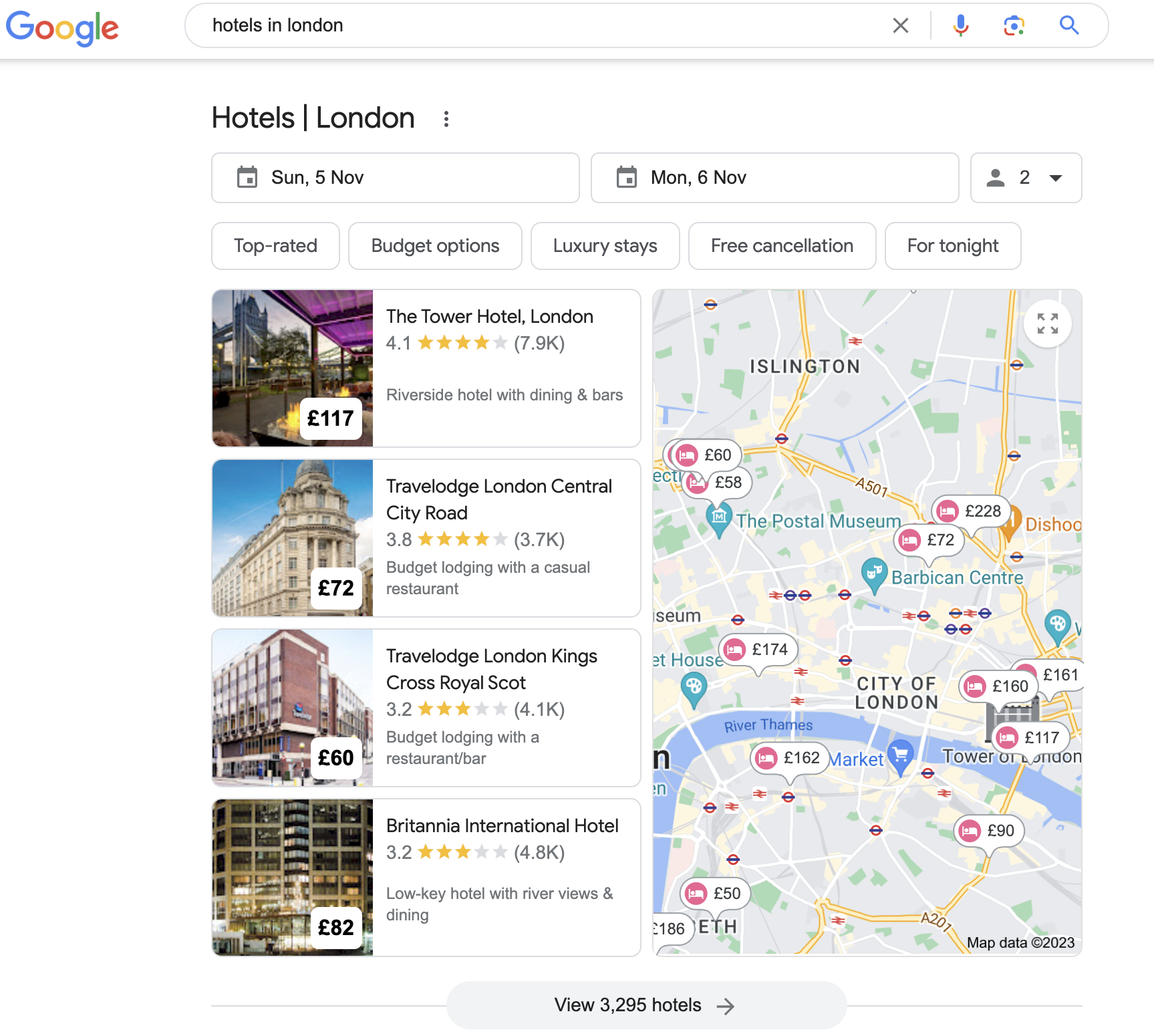
Gone are the days when a glitzy brochure was enough to sway potential customers.
NB: This is an article from Arise
Now, online reviews play a pivotal role in a hotel’s SEO strategy, influencing not just visibility but also credibility amongst consumers. 95% of customers read online reviews before buying a product, with 49% of those consumers trusting online reviews as much as personal recommendations so it’s evident that online reviews aren’t something to glaze over as a part of your hotel SEO strategy.
Subscribe to our weekly newsletter and stay up to date
In this blog article, we’ll discuss the impact of online reviews for your hotel, the many platforms that play a role in this influence, and how to leverage this component best to optimise your hotel’s SEO strategy.
The Impact of Online Reviews on Hotel SEO
When it comes to online search, it’s fair to say that Google reigns supreme, and its search algorithm is always changing. One of the key elements that Google considers when ranking websites is online reviews. These reviews don’t just influence consumer decisions; they directly impact how Google positions your hotel in search results.
Google has a sophisticated enough algorithm to distinguish between local and general searches. For instance, Google recognises the local context when a user puts in “hotels in London” and displays a variety of organic search results in addition to a “Local Pack” listing nearby companies along with their address, phone number, and reviews.

With such an algorithm, the question remains, how do you get your hotel to feature in this space over others? Amongst other local SEO factors such as proximity and relevance, Google considers the volume and variety of your hotel’s reviews into its ranking algorithm. If you customers are frequently mentioning positive experiences will show Google your establishment is relevant to that search query. However, it should be said, whilst online reviews do have an impact on your hotel SEO, it has not been disclosed as to how big of an impact it makes, but we’d recommend taking this precautionary measure.
Types of Review Platforms for Hotels
A few platforms stand out when gauging customer sentiment, they serve as key touchpoints in a customers online journey and may be the first impressions they get when considering your hospitality – at the end of the day, people trust people.
This tool, which is directly integrated into Google Maps and Search, influences SEO
and provides instant visibility for local searches. Because its reviews frequently show up in the “Local Pack,” which is an essential component of any hotel’s web profile.
Advice: Make sure your profile is full of current details, high-quality images, and timely replies to reviews— both positive and negative.
Known for its comprehensive ratings that address everything from dining experience to hotel quality, TripAdvisor has emerged as the preferred website for tourists all over the world. Being well-rated on TripAdvisor can greatly increase bookings because of features like the Travellers’ Choice Awards.
Advice: To monitor your hotel’s performance data, use the platform’s management centre to encourage happy customers to write reviews. Make use of the ‘Review Express’ function to request reviews post-stay.
Yelp:
Although it is most popular in the US, Yelp is becoming more and more significant on a global scale. Not only may reviews impact a reservation’s success but also your hotel’s overall reputation over time.
Advice: To manage and reply to reviews, frequently check your Yelp dashboard. To encourage visitors to write reviews, you can also promote “Check-In Offers.”
Managing and Leveraging Online Reviews
Now that we’ve covered the basics. Let’s discuss how to best leverage online reviews to optimise your hotel SEO strategy. In particular, dealing with negative reviews.
Negative reviews can sting, but they also offer an opportunity for improvement and show potential guests that you take feedback seriously. Here’s a simple approach:
Immediate Acknowledgement: Respond to the review as quickly as possible. This shows that you’re attentive and care about guest experiences.
Be Professional and Apologetic: Your response should be polite and express regret that the guest had a less-than-ideal experience.
Follow-up Actions: If the issue is resolvable, ensure it’s addressed promptly and let the reviewer know what steps you’ve taken.
Responding to these negative reviews (as well as acknowledging the positive ones) shows your customers that you genuinely care about their experience, making them likely to proceed with their journey even if they stumble upon someone who has had a negative experience.




